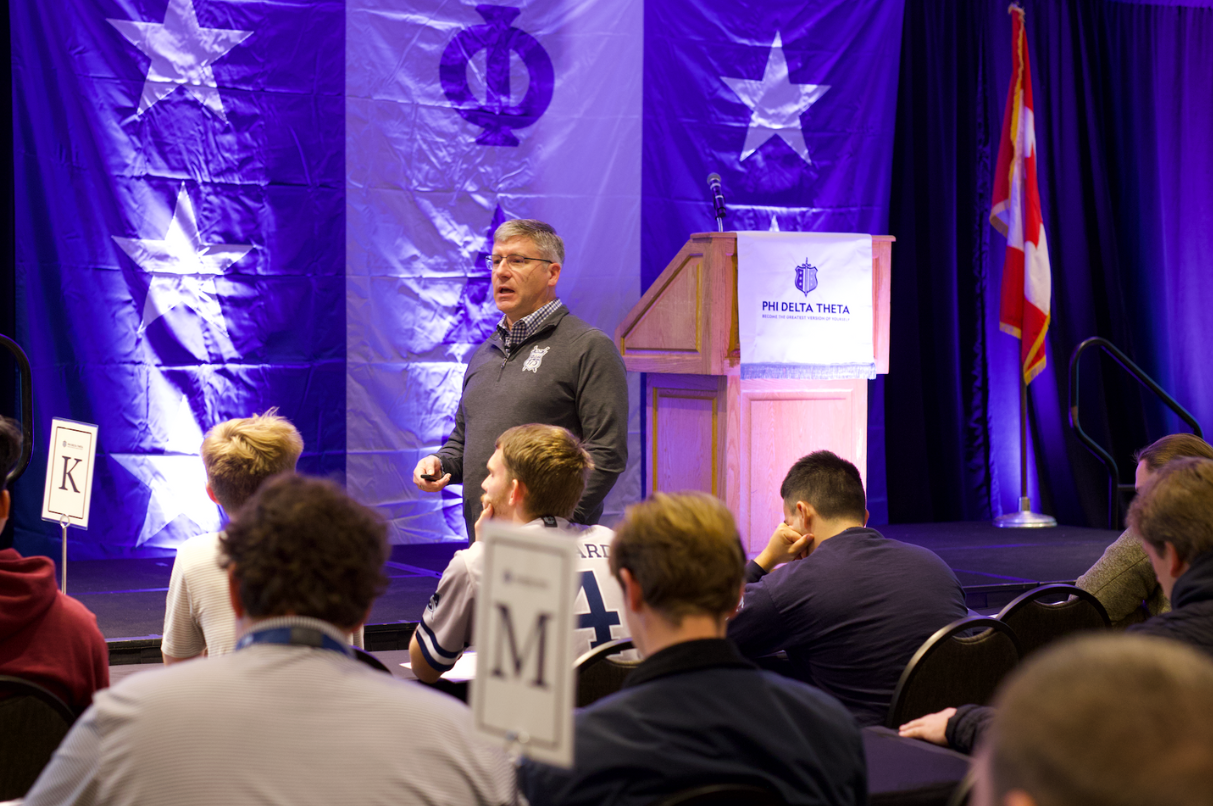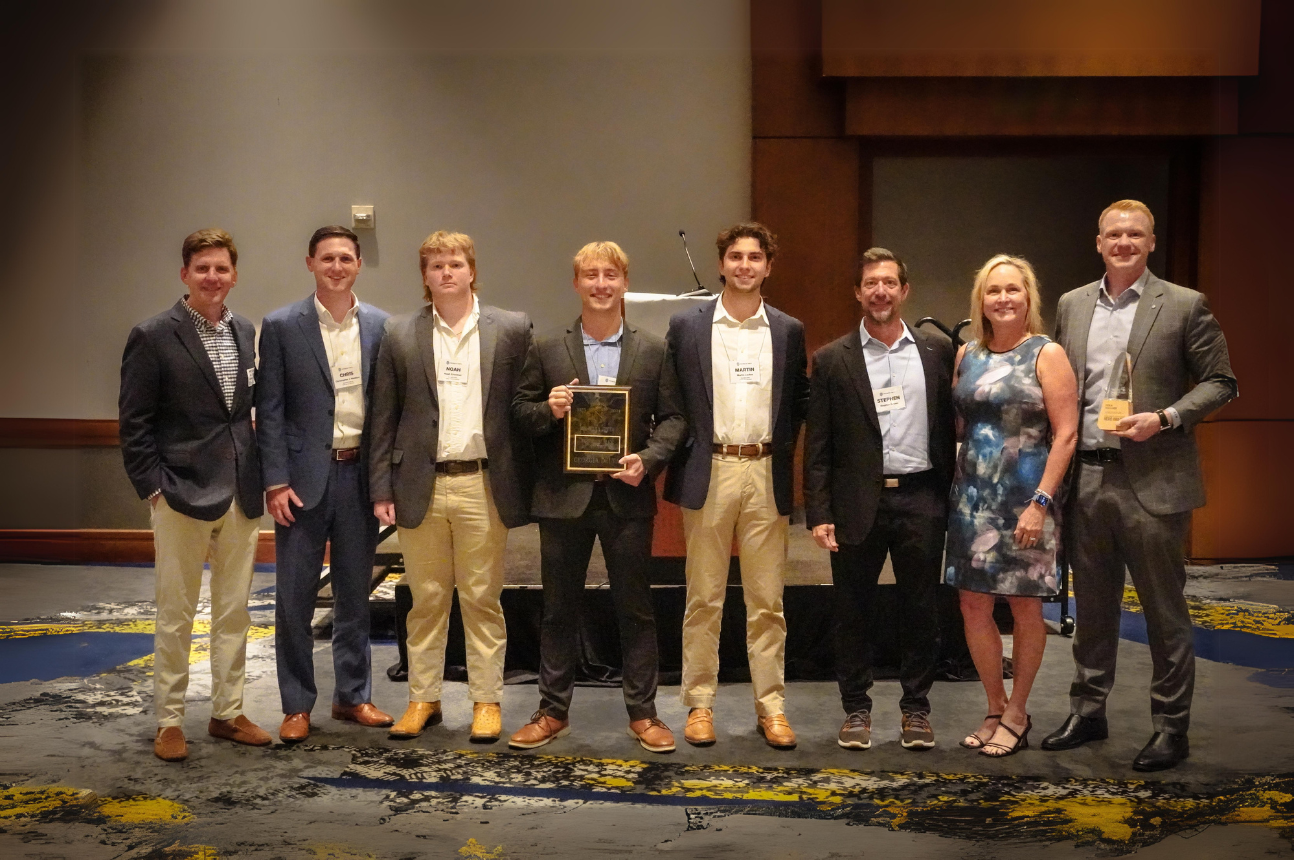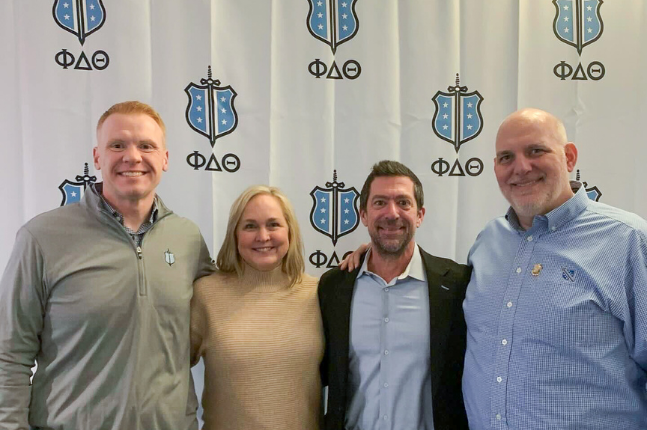It’s National Hazing Prevention Week. I am sure many sheets have been sacrificed and covered with paint and various types of glitter to let people know that hazing is not part of the Greek organizations on campus. Now don’t get me wrong, I love banners as much as the next Panhellenic advisor. However, a culture of hazing on campus is not combatted through awareness campaigns alone. It is time for chapters to think about what we can be doing outside of banners and flyers to directly address hazing issues on our campus.
First and foremost, chapters should be reaching out to not only our friends in the Greek community, but others on campus as well. Who are those people that have similar issues as you or an interest in the “fight.” Campus culture will matter in that discussion. Typically athletics, ROTC programs, student organizations, marching bands, campus security, faculty, and other areas all can and should be a part of this movement. Also, don’t limit yourself to just your campus. We have a variety of stakeholders in our communities that would love to help in these efforts. Remember, the more people you pull together, the more resources you have at your disposal. This is especially important given the current economic crisis in our country. A chapter shouldn’t attempt this alone. Get others involved and find ways you can integrate into efforts already taking place on your campus.
When it comes to chapter programming, there are three areas of focus that can guide chapters. The first programming area is AWARENESS. While I alluded that banners don’t prevent hazing, they do help people become aware of the issue of hazing. Look for ways to generate a “buzz” about hazing issues on campus. Use every avenue possible to create awareness. The great thing is that ANY event you do will help in this area. You will know what reaches your fellow students on your campus better than anyone else. Use banners, newsletters, flyers, table cards, or the campus newspaper, if you have it on campus use it to get the word out. Also there are limitless options for ways to incorporate technology. From Facebook to Twitter to campus announcements to iPhone applications there is a buffet of options. The important thing is for your chapter to explore what will best integrate into your campus community. Are you a podcast campus? Do you have a daily student news e-mail? Don’t feel the need to re-invent the wheel. If there is something that works on your campus then use it. It allows you more time to focus on the message than the delivery method.
The next programming area is to create an UNDERSTANDING of the problem. Awareness simply addresses what the problem is, but understanding takes it to that next level of “why it is a problem.” This is harder to address in passive programing. Sometimes national statistics simply fly past students. Many times we hear, “Yeah, but that doesn’t happen here?” This is when you need to create more education-based programs. You need to strive to make this piece real and relevant to the students on your campus. Your chapter will know your fellow students better than anyone else, make sure you find those cultural pieces that will help your campus actually understand why this is a problem. This could be done through hosting a national speaker or an educational program. You need to find a message that makes it personal to your chapter and campus. There are a variety of resources in this area that you can get from your national organization, on campus Greek advisor, and online through sites such as www.hazingprevention.org.
Finally, we need to look at events that EMPOWER our students. This is the most hard task to accomplish. Basically, you are giving people the skills to lead this change and models of change. This is accomplished through activating bystanders. In the hazingprevention.org planning document that can be found on the website, it discusses activating the bystanders on campus.
“The best way to eliminate hazing is to activate the bystanders – those who are standing idly by while hazing takes place. Even students who don’t actively take part in hazing, allow it to continue by not standing up against it. You may feel you are the only one who is opposed to hazing, but that is probably not the case – you are probably in the silent majority, but no one wants to be the first to speak up.”
Look at activities that activate the bystander. In your educational programs, give them actual examples on how to not only actively confront hazing, but how to potentially diffuse a situation through distractions and positive programming. Walk people through real life situations and scenarios and give them options on how to handle the situation. Make sure students are educated about the resources they have on campus to help them actively take a stand against hazing. You want people to leave your programs saying, “I CAN actually make change in my organization.”
I hope you all use your collective chapters to think about taking hazing prevention to the next level. You should be in the business of teaching and creating leaders that are committed to a hazing free environment. Remember, this is just one week to highlight an issue should be addressing all year. Your chapter can be a leader in this effort on campus. How better to live the mission of your founders?
Adam currently resides in Blacksburg Virginia where he is the Assistant Director of Fraternity and Sorority Life at Virginia Tech. Adam also sits on the Sexual Violence Prevention Council for Virginia Tech, and serves on the Mentors in Violence Prevention Facilitation Team. Adam finished a M.S. degree in Educational Leadership with an option in College Student Development in 2008 from Oklahoma State University. He also holds a B.A. in Integrated Sciences/Biology and a M.A. in Secondary Education from West Virginia University. Adam is also a proud lifetime member of Sigma Phi Epsilon Fraternity and volunteers on the local level. Adam is also a facilitator for CAMPUSPEAK





